we use the TPSM84A22 to provide 1.39 V at maximum 8A rail in our system. Please see the sch:
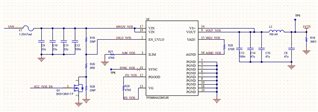
the total output capacitance is 141uF ( 3x 47uF ceramic) plus 0.1uF as seen above.
Note : the inductor seen in the PI filter at the output has no effect on the behaviour described bellow. (the inductor was replaced by a 0 Ohms resistors and the behaviour was the same)
we are seeing situations (so far we have 5 boards out of couple of hundreds behaving this way...) where the power module seemingly struggles powering into capacitive loads. Please see bellow for scopes:
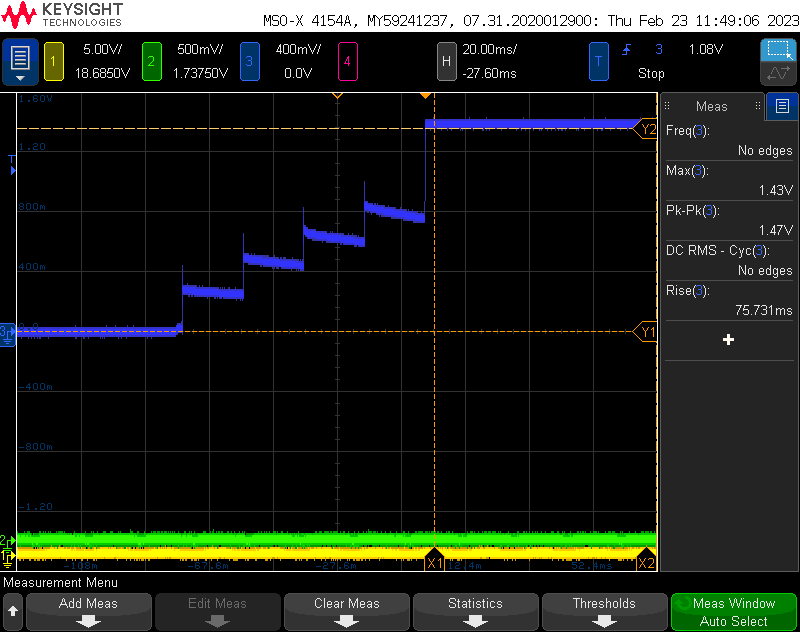
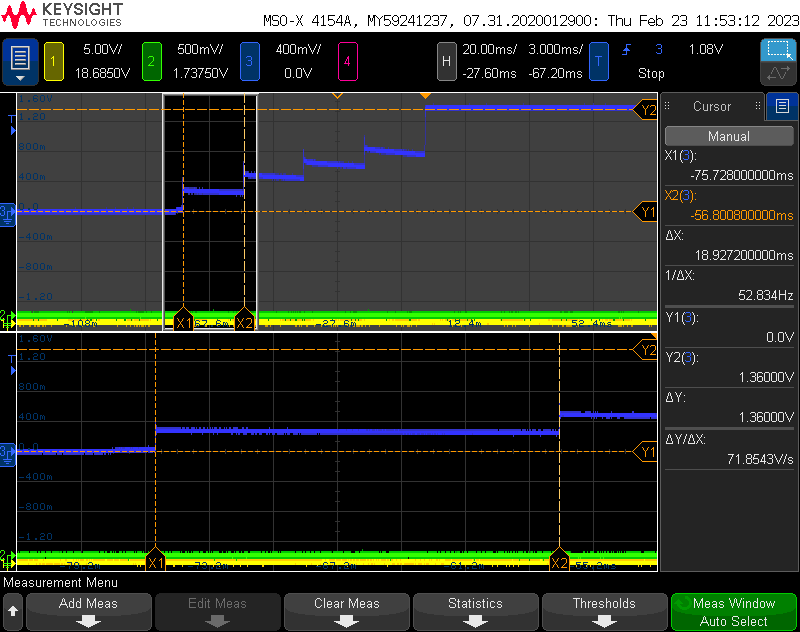
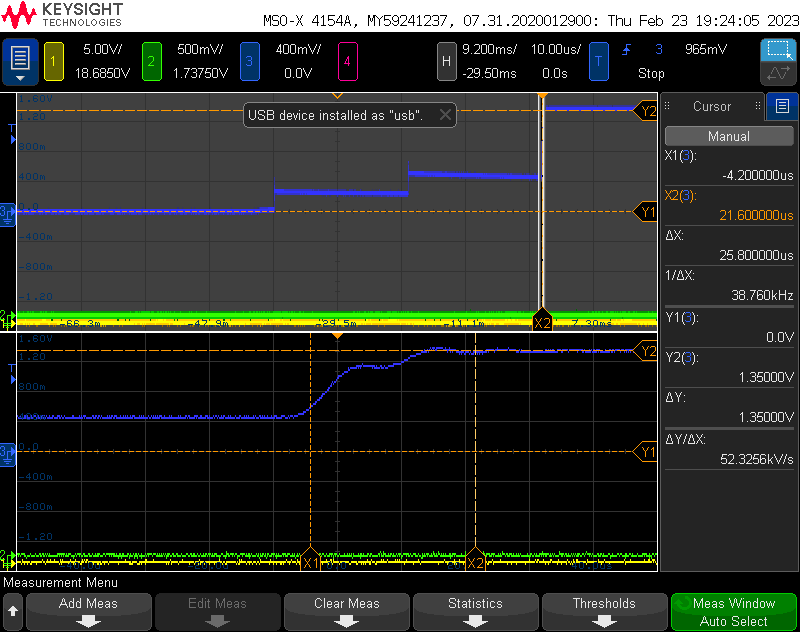
and sometimes (1 in 5 tries) the module fails to power up and it seems entering a pseudo hiccup mode as seen below:
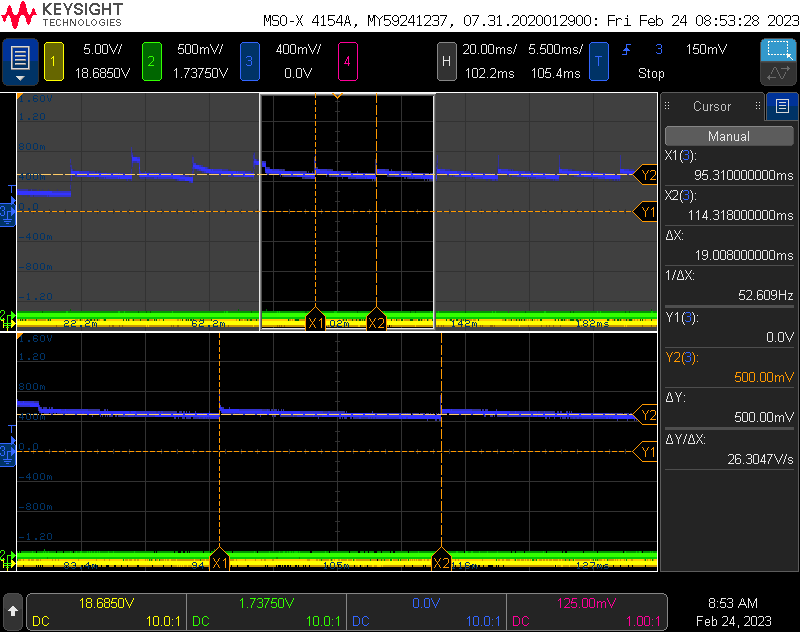
the module is still providing 0.5V as seen. The hiccup time is around 19ms, quite a bit shorter than the 32.8ms as mentioned in the datasheet.
The behaviour seen most likely seems to be related with the Soft Start Feature not behaving as it should. Verry sharp ramp ups (around 22us) can be seen. Per data sheet the module has a pre-programmed soft start time of 4.1ms (typ).
Removing the 3 x 47uF ceramic caps at the output (C14, C15 and C8) makes the module power up without issues but the ramp up is still as mentioned, way faster at 22us than the 4.1ms per datasheet.
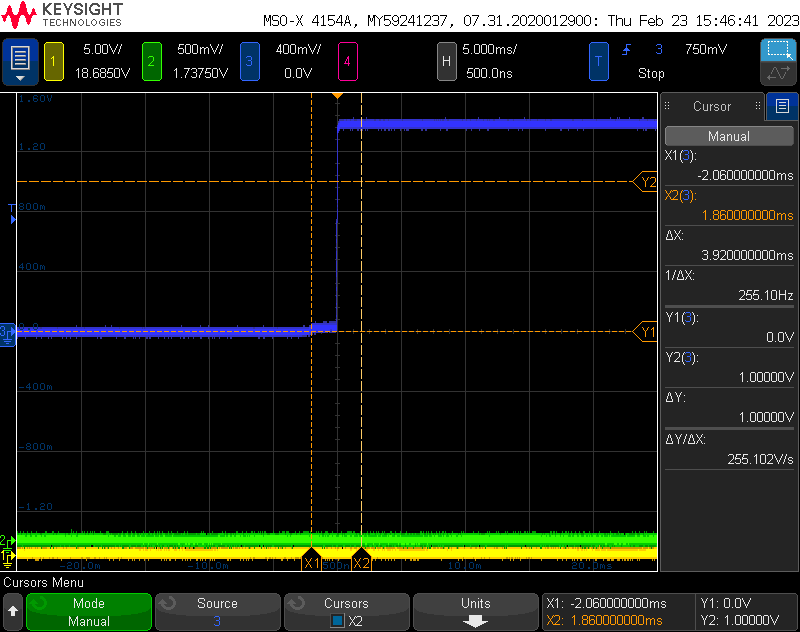
Has anybody seen this behaviour?
Replies are much appreciated.
Thank you.

